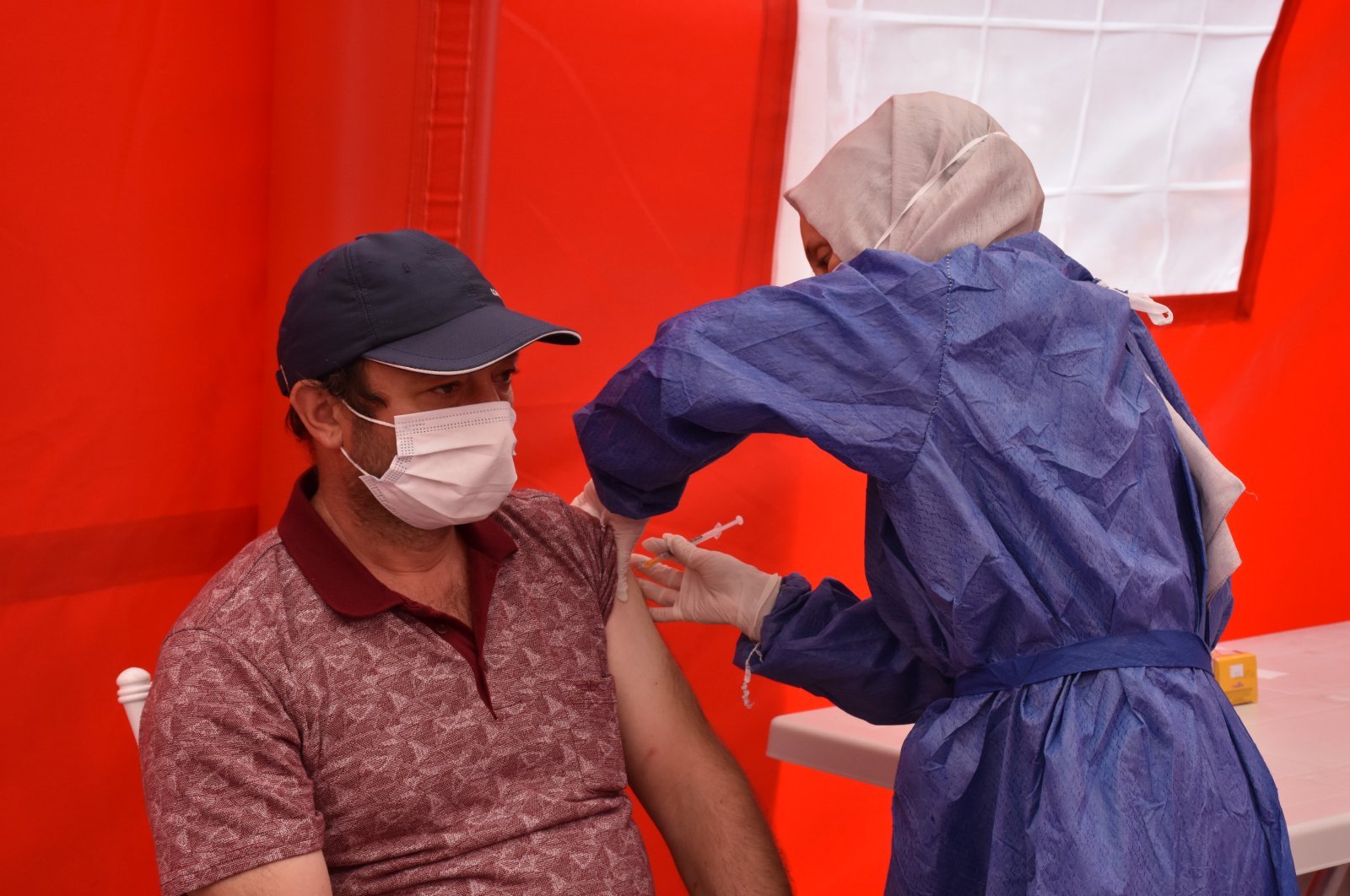With the rapid rise in cases amid COVID-19 delta variant concerns, Turkey considers lowering the vaccine eligibility age to 12 and imposing restrictions in public venues for those not vaccinated
Daily coronavirus cases are snowballing again after weeks of decline. On Monday, the country reported the highest number of cases since May at over 16,000.
The swiftly climbing cases are blamed on the delta variant taking hold in the country, as well as vaccine hesitancy. In light of these developments, authorities plan to lower the eligibility age for vaccination to 12 while no further restrictions such as curfews are planned. Instead, the country aims to introduce restrictions especially in crowded or public spaces for unvaccinated individuals.
If the pandemic continues at its current pace or worsens, new measures are planned for autumn, a risky season for infections, as more people tend to spend time indoors. A full lockdown, like the one imposed in spring, is out of the question for now.
Faster infections stemming from the delta variant and higher mobility during the recent nine-day holiday for Qurban Bayram, also known as Eid al-Adha, boosted the number of cases. Turkey reported hundreds of delta cases, along with a few delta plus cases earlier this month. However, a normalization process that ended curfews and closure of many businesses as of July 1, also played a role in the rise of infections.
The situation can become dire with people heading back from their hometowns or from vacation resorts to the big cities in the west. Within two weeks, case numbers are expected to exceed 20,000. Daily fatalities, which were 63 as of Monday, may also increase, though the impact of increasing cases on the number of fatalities will only be evident within the next 20 days.
Experts say that although fatalities will rise, they would not be as high as they were last year, thanks to the vaccination which makes the disease less severe for the infected. The vaccination drive, during which more than 67 million doses were administered, kept the number of severe cases low. Currently, vaccinated people make up only 5% of those in intensive care due to the coronavirus.
Authorities repeatedly say vaccination, along with adhering to wearing protective masks and keeping social distancing, are key to curbing the pandemic. Vaccine hesitancy, on the other hand, threatens the vaccination drive which sped up with the arrival of new vaccines by China’s Sinovac and Pfizer-BioNTech.
Within the next two months, the Health Ministry will step up efforts to convince more people to get their jabs, in a bid to achieve mass immunity. If this fails to further increase vaccination numbers, the unvaccinated will be barred from entering indoor areas such as shopping malls and cinemas in the autumn.
Autumn is also a time when millions of students return to school. Schools are scheduled to reopen on Sept. 6. Students had to switch to remote education for most of the pandemic and last year, schools were shut in November, two months after the start of in-person education.
The majority of teachers had been vaccinated but the lowest eligibility age stands at 18 for now. Lowering the age to 12 will provide a safer school environment for millions of students. The Coronavirus Scientific Advisory Board, which provides recommendations to the government on how to control the pandemic, is expected to recommend lowering the vaccination age before the reopening of schools.










Discussion about this post